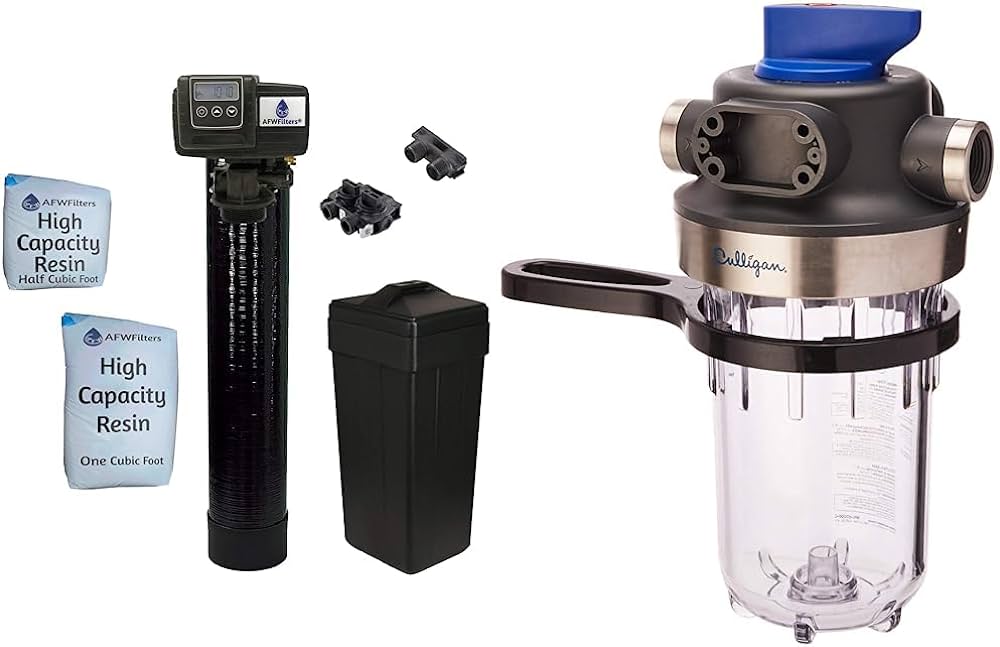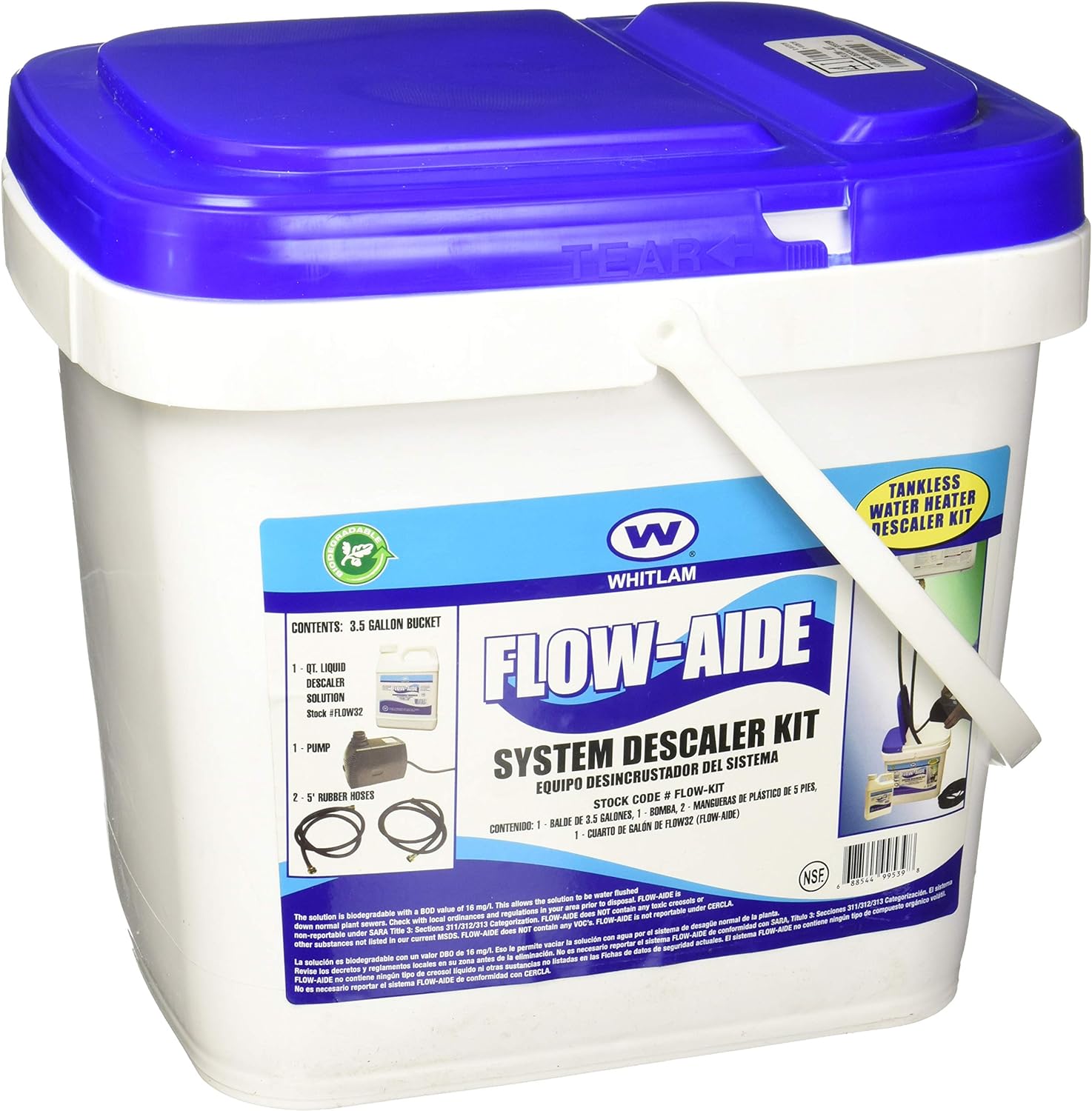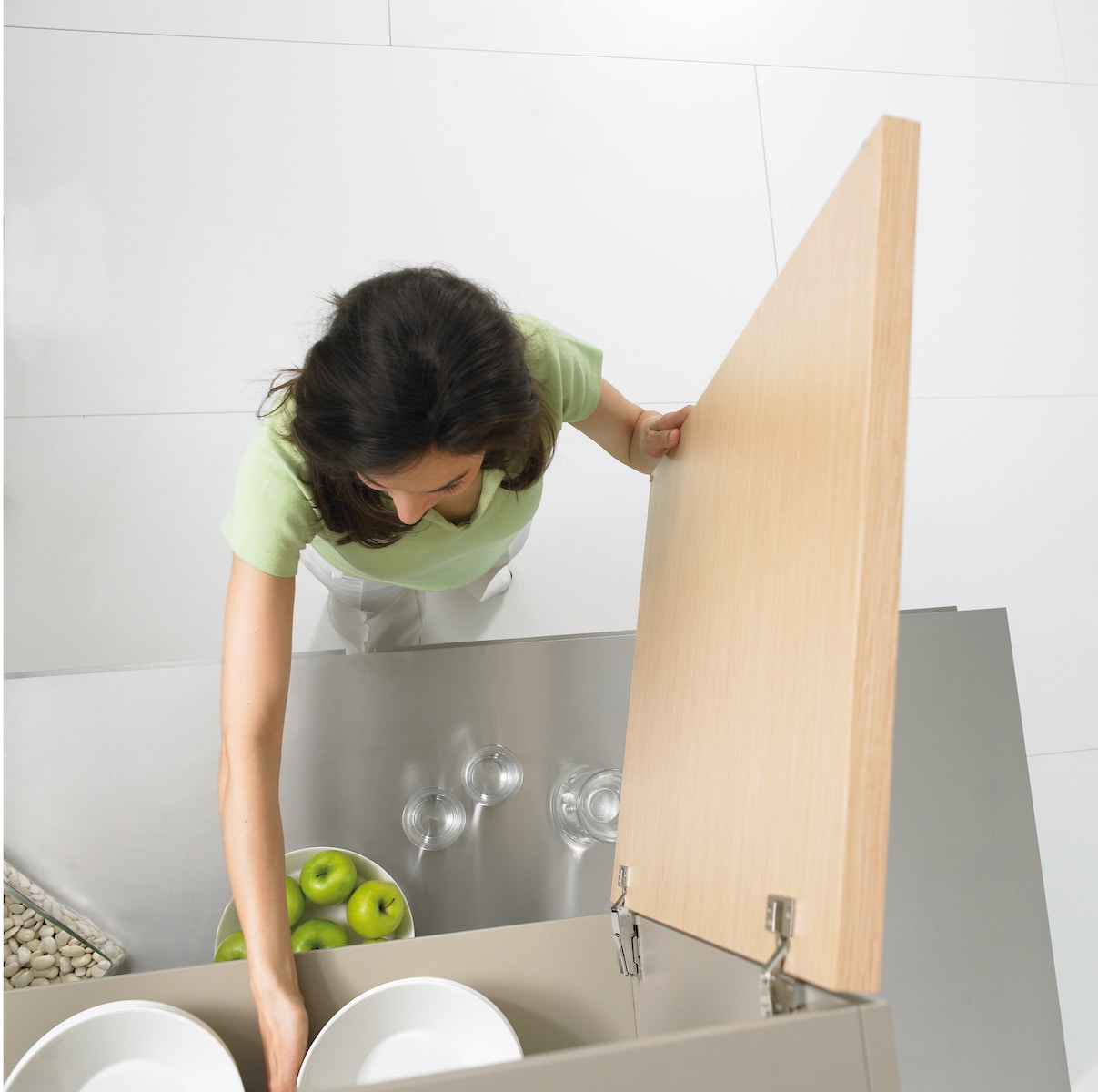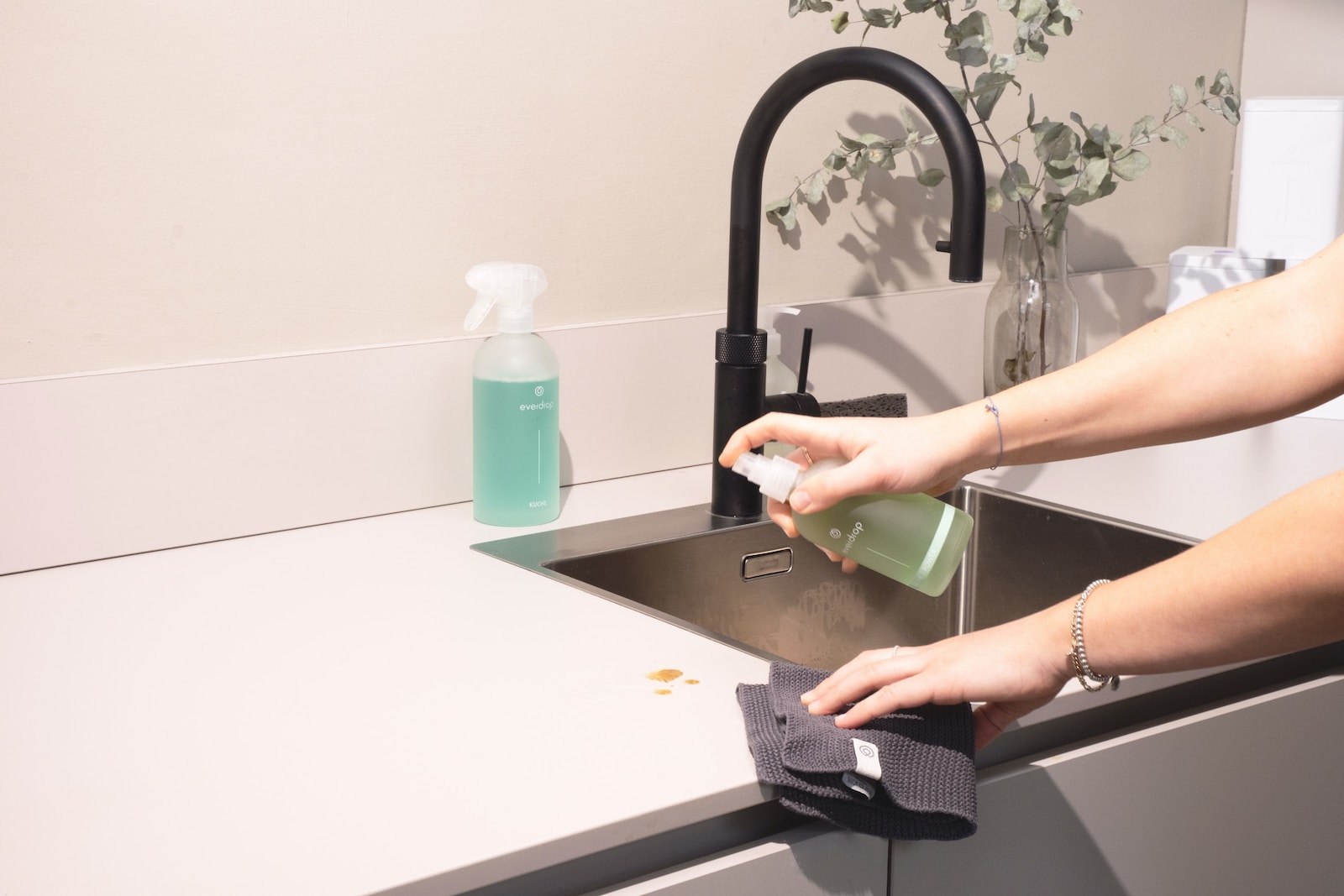Hard Water vs Soft Water: A Comparative Study
Purchasing products via the links in our article may result in us earning a commission, but rest assured, this does not influence our editorial independence.
Water is an essential resource that we rely on every day for various purposes.
However, not all water is the same. There are two main types of water that most people encounter: hard water and soft water. Understanding the differences between these two types is crucial for making informed decisions regarding water usage.
In this comparative study, we will explore the characteristics, benefits, and drawbacks of hard water and soft water, providing a comprehensive analysis to help you choose the best option for your needs.
What is Hard Water?
Hard water is water that contains high levels of dissolved minerals, primarily calcium and magnesium. These minerals are naturally present in the earth’s crust and can find their way into water sources through the soil and rocks. The presence of these minerals gives hard water its characteristic properties.
Common minerals found in hard water include calcium carbonate, magnesium carbonate, and calcium sulfate. These minerals can create scale buildup in pipes, appliances, and fixtures over time, leading to various issues.
What is Soft Water?
Soft water, on the other hand, is water that has been treated to remove or reduce the minerals that cause hardness. This is typically achieved through a process called water softening, which involves the removal of calcium and magnesium ions from the water.
Soft water is obtained through various methods, including ion exchange, salt-free conditioning, and reverse osmosis. These processes effectively remove the minerals responsible for hardness, resulting in water that feels smoother and has a lower mineral content.
Using soft water has several benefits, which we will explore in more detail later in this study.
Understanding Water Hardness Levels
Water hardness is typically measured in grains per gallon (GPG) or parts per million (PPM). The classification of water hardness levels is as follows:
- Soft water: 0-1 GPG or 0-17.1 PPM
- Slightly hard water: 1-3.5 GPG or 17.1-60 PPM
- Moderately hard water: 3.5-7 GPG or 60-120 PPM
- Hard water: 7-10.5 GPG or 120-180 PPM
- Very hard water: Above 10.5 GPG or 180 PPM
The hardness level of your water can have a significant impact on daily activities, such as cleaning, personal care, and appliance usage.
Effects of Hard Water on Household Appliances
Hard water can have detrimental effects on household appliances due to the mineral buildup it causes. Some of the common issues include:
-
Scale buildup in pipes and appliances: The minerals in hard water can accumulate over time, forming scale deposits that can clog pipes and reduce water flow. This can lead to decreased efficiency and increased energy consumption.
-
Decreased efficiency and lifespan of appliances: Appliances that come into contact with hard water, such as dishwashers, washing machines, and water heaters, can experience reduced efficiency and a shorter lifespan. The mineral buildup can interfere with the proper functioning of these appliances, leading to costly repairs or replacements.
-
Maintenance and cleaning challenges: Hard water can leave behind mineral deposits on surfaces, making it more challenging to clean and maintain appliances. This can result in the need for more frequent cleaning, the use of harsh chemicals, and a decrease in the overall performance of the appliances.
Effects of Hard Water on Skin and Hair
The effects of hard water extend beyond household appliances and can also impact personal care. Here are some of the effects of hard water on the skin and hair:
-
Dryness and irritation of the skin: The minerals present in hard water can strip the skin of its natural oils, leading to dryness, irritation, and even conditions like eczema. This can make the skin feel tight, itchy, and uncomfortable.
-
Hair damage and dullness: Hard water can leave a residue on the hair, making it appear dull, dry, and lifeless. The minerals can also weigh down the hair, making it more challenging to style and manage. Additionally, the residue can interfere with the effectiveness of hair products, such as shampoos and conditioners.
-
Importance of using soft water for personal care: Using soft water for bathing and washing the face can help alleviate the negative effects of hard water on the skin and hair. Soft water is gentler and less likely to strip away the skin’s natural oils or leave a residue on the hair, resulting in healthier-looking skin and hair.
Also read: What Does Hard Water Do to Your Hair?
Effects of Hard Water on Laundry
Hard water can also impact the laundry process and the quality of your clothes. Here’s how:
-
Stiffness and discoloration of clothes: The minerals in hard water can bind to the fibers of the fabric, causing stiffness and a rough texture. This can make clothes uncomfortable to wear and reduce their lifespan. Additionally, hard water can cause colors to fade or become dull over time.
-
Residue and soap scum buildup: Hard water can interfere with the effectiveness of laundry detergents, leading to the formation of soap scum on clothes. This residue can make clothes look dingy and feel less clean. It can also contribute to the buildup of mineral deposits in the washing machine.
-
Tips for washing clothes in hard water: To mitigate the effects of hard water on laundry, you can try using extra detergent, adding a water softening agent, or opting for a laundry detergent specifically formulated for hard water. These measures can help improve the cleanliness and appearance of your clothes.
Effects of Hard Water on Plumbing Systems
Hard water can have a significant impact on the plumbing systems in your home. Here’s how:
-
Clogging and reduced water flow: The minerals in hard water can accumulate in pipes and fixtures, leading to clogs and reduced water flow. This can result in low water pressure, slow drainage, and the need for frequent plumbing repairs.
-
Corrosion of pipes and fixtures: The minerals in hard water can react with the metal components of your plumbing system, causing corrosion and damage over time. This can lead to leaks, pipe bursts, and costly repairs.
-
Increased maintenance and repair costs: Dealing with the effects of hard water on your plumbing system can be expensive. From unclogging pipes to replacing corroded fixtures, the costs can add up over time. Installing a water softener can help prevent these issues and save you money in the long run.
Benefits of Soft Water for Household Chores
Using soft water for household chores can offer several advantages. Here are some benefits:
-
Increased effectiveness of cleaning products: Soft water allows cleaning products to lather more easily and work more effectively. This can result in cleaner surfaces, dishes, and laundry.
-
Reduced soap and detergent usage: Soft water requires less soap or detergent to achieve the same level of cleanliness as hard water. This can lead to savings on cleaning products and a decrease in the amount of chemicals released into the environment.
-
Sparkling dishes and glassware: Soft water can help prevent the formation of spots and streaks on dishes and glassware, resulting in sparkling and spot-free results. This can eliminate the need for additional rinsing or the use of harsh chemicals.
Health Considerations: Hard Water vs Soft Water
The type of water you consume can also have implications for your health. Here are some considerations:
-
Potential health risks associated with hard water: Some studies suggest that consuming hard water with high levels of certain minerals, such as calcium and magnesium, may have potential health risks. These risks include an increased risk of kidney stones and cardiovascular disease. However, more research is needed to establish a definitive link.
-
Benefits of consuming soft water: Soft water, which has a lower mineral content, may be more suitable for individuals with specific health conditions or concerns. It can also be beneficial for individuals on low-sodium diets, as soft water typically has a lower sodium content.
-
Impact of water hardness on mineral intake: Water can be a significant source of essential minerals, such as calcium and magnesium. The hardness or softness of the water you consume can affect your overall mineral intake. It’s important to consider your dietary needs and consult with a healthcare professional if you have specific concerns.
Water Softening Methods
There are various methods available for softening water. Here are three common water softening techniques:
-
Ion exchange water softeners: Ion exchange is the most common method used for residential water softening. It involves replacing calcium and magnesium ions with sodium or potassium ions. This process effectively removes the minerals responsible for water hardness.
-
Salt-free water conditioners: Salt-free water conditioners, also known as descalers or water conditioners, do not remove the minerals from the water. Instead, they alter the structure of the minerals, preventing them from causing scale buildup. While these systems do not provide the same level of water softening as ion exchange, they can still offer some benefits.
-
Reverse osmosis systems: Reverse osmosis is a water filtration process that can effectively remove a wide range of contaminants, including minerals that cause water hardness. Reverse osmosis systems are typically used for more comprehensive water treatment and can provide both softening and purification.
Choosing the Right Water Softening Solution
When selecting a water softening solution, there are several factors to consider. Here are some key considerations:
-
Factors to consider when selecting a water softener: These factors include the hardness level of your water, the size of your household, the space available for installation, and the budget you have allocated for a water softening system. It’s essential to choose a system that can effectively meet your specific needs.
-
Cost and maintenance considerations: Different water softening systems vary in terms of cost, both upfront and ongoing. It’s important to consider the initial investment, as well as the costs associated with maintenance, such as salt or filter replacements. Additionally, some systems may require professional installation, which can add to the overall cost.
-
Environmental impact of different systems: Some water softening methods, such as ion exchange, involve the use of salt, which can have environmental implications. Salt discharge from water softeners can affect water sources and contribute to increased sodium levels in the environment. Salt-free and reverse osmosis systems may be more environmentally friendly alternatives to consider.
Frequently Asked Questions (FAQs) about Hard Water vs Soft Water
As you explore the topic of hard water vs soft water, you may come across several common questions. Here are answers to some frequently asked questions:
Hard water can have a slightly different taste due to the minerals present. Some people may describe it as having a mineral or metallic taste.
Hard water can contribute to skin dryness and irritation, which may exacerbate certain skin conditions. However, it is unlikely to cause allergies directly.
Hard water is generally safe to drink, as the minerals it contains are not harmful in moderate amounts. However, individuals with specific health concerns or dietary restrictions may prefer to consume soft water.
The lifespan of a water softener can vary depending on the type, quality, and usage. On average, a well-maintained water softener can last between 10 to 20 years.
The installation of a water softener can be complex, especially for certain types of systems. It is recommended to consult with a professional plumber or follow the manufacturer’s instructions for proper installation.
Conclusion
In conclusion, understanding the differences between hard water and soft water is essential for making informed decisions regarding water usage. Hard water contains high levels of minerals, which can lead to various issues with appliances, personal care, and household chores. Soft water, obtained through water softening methods, offers several benefits, including increased efficiency, improved personal care, and reduced maintenance costs.
By considering the specific needs of your household, the hardness level of your water, and the environmental impact of different systems, you can choose the right water softening solution for your needs. Whether you opt for an ion exchange system, a salt-free conditioner, or a reverse osmosis system, softening your water can improve the quality of your daily life and contribute to a healthier and more sustainable environment. Explore the various water treatment options available, and take the first step towards enjoying the benefits of soft water in your home.
Michael Smith
Michael Smith is a chemical engineer who specializes in water treatment and descaling solutions. He has a wealth of knowledge on the science behind descaling and the various methods and products available. He is dedicated to educating others on the importance of descaling and maintaining their appliances through his blog, Descaler Genius.




